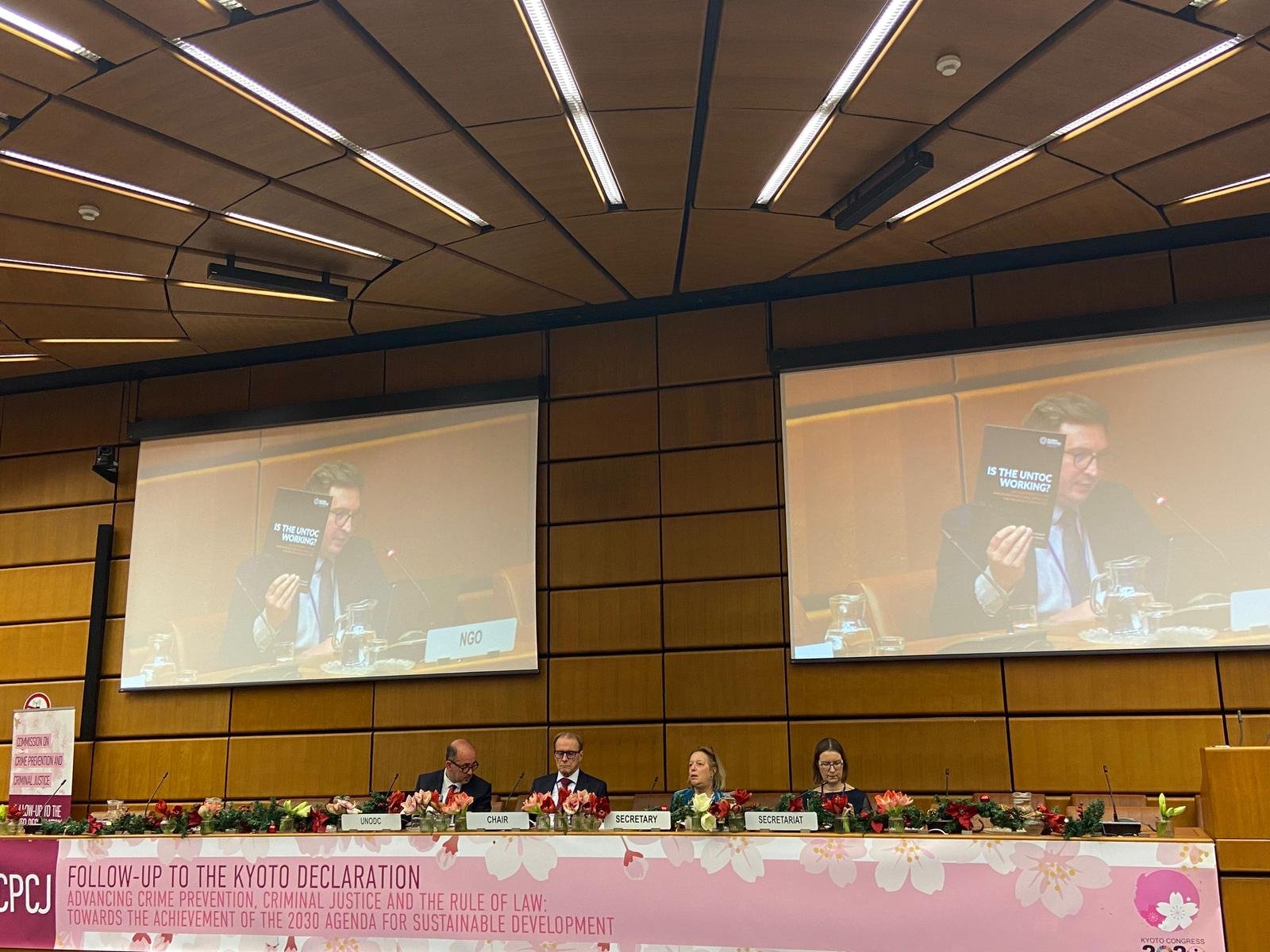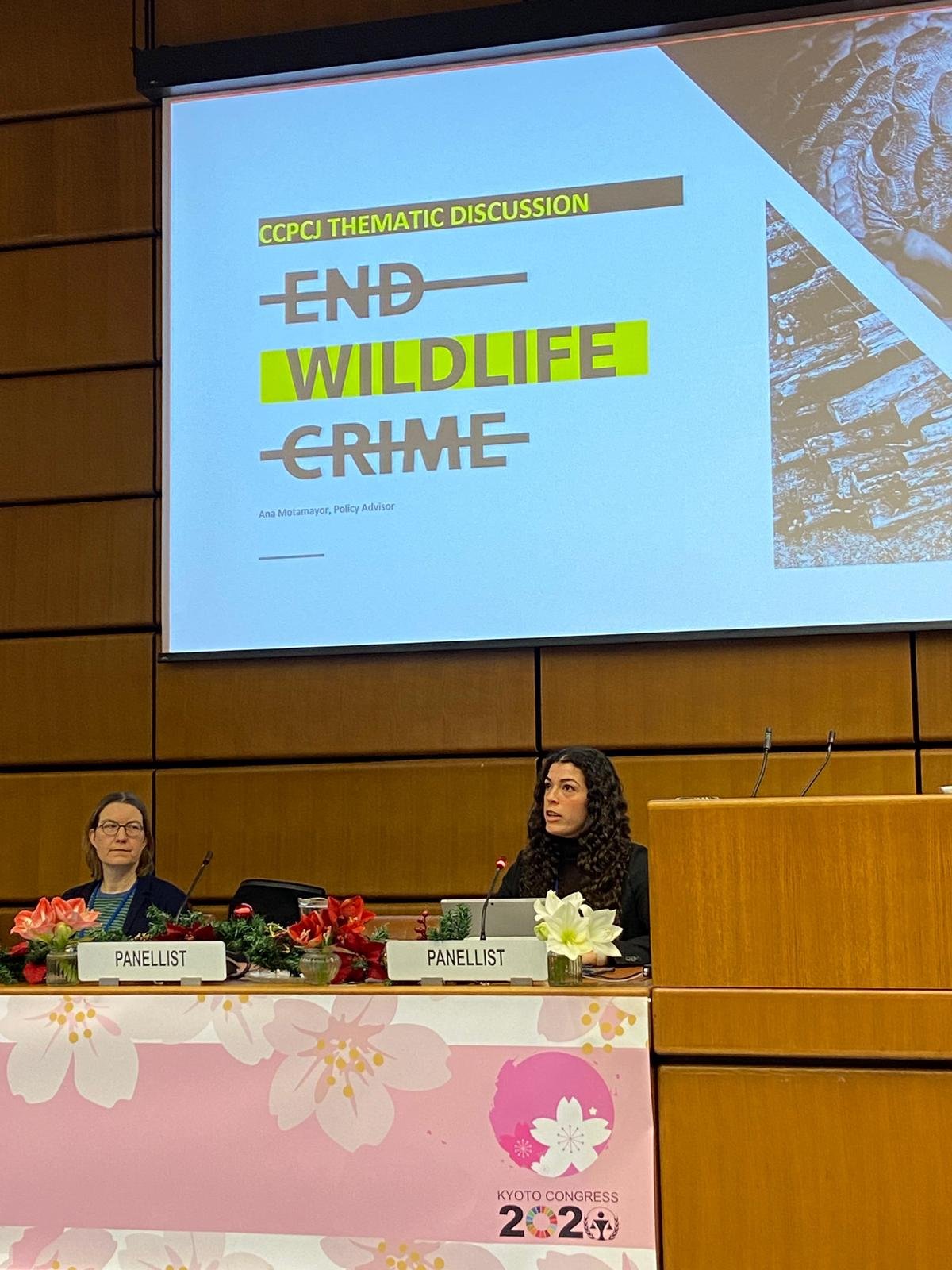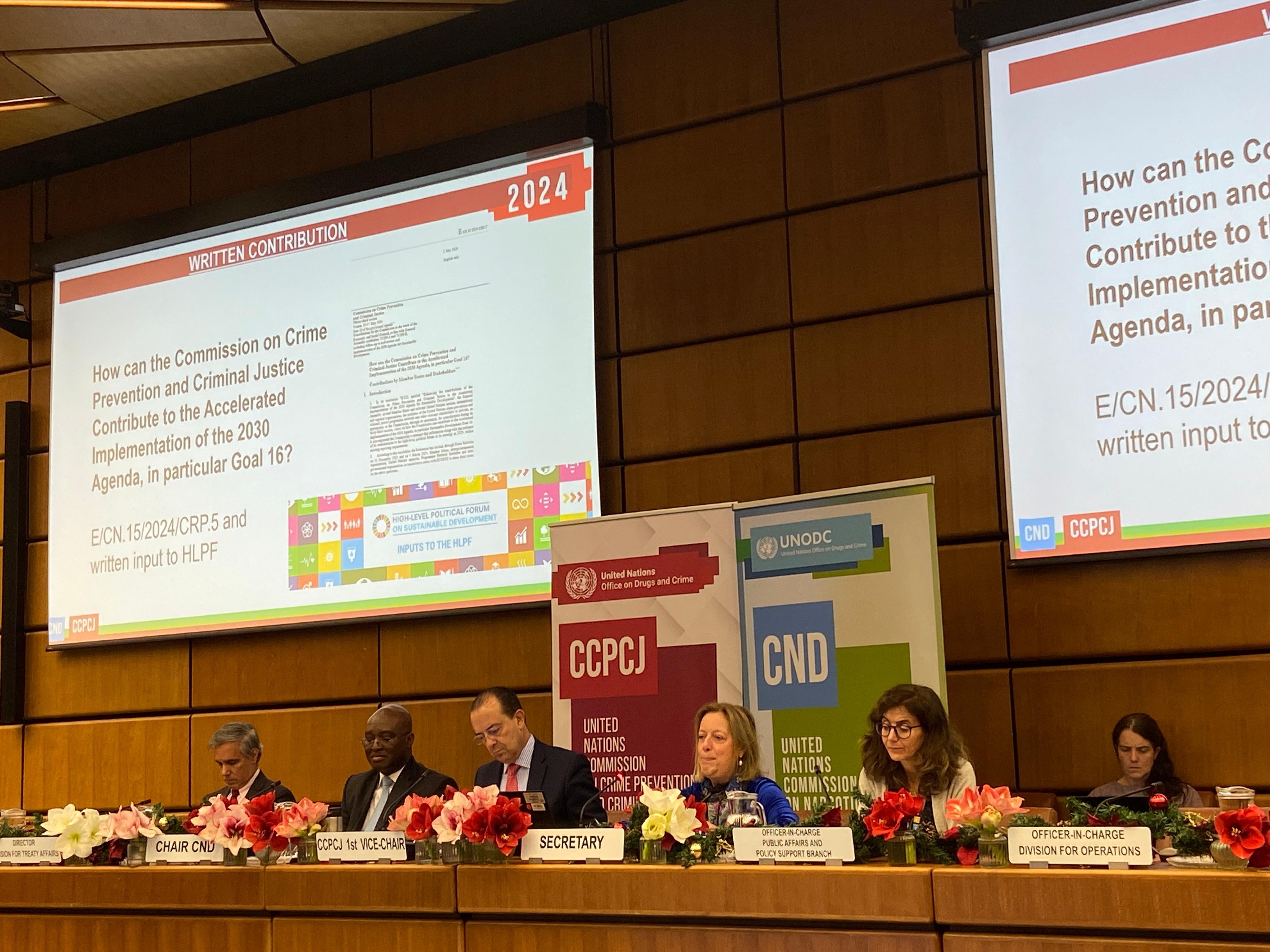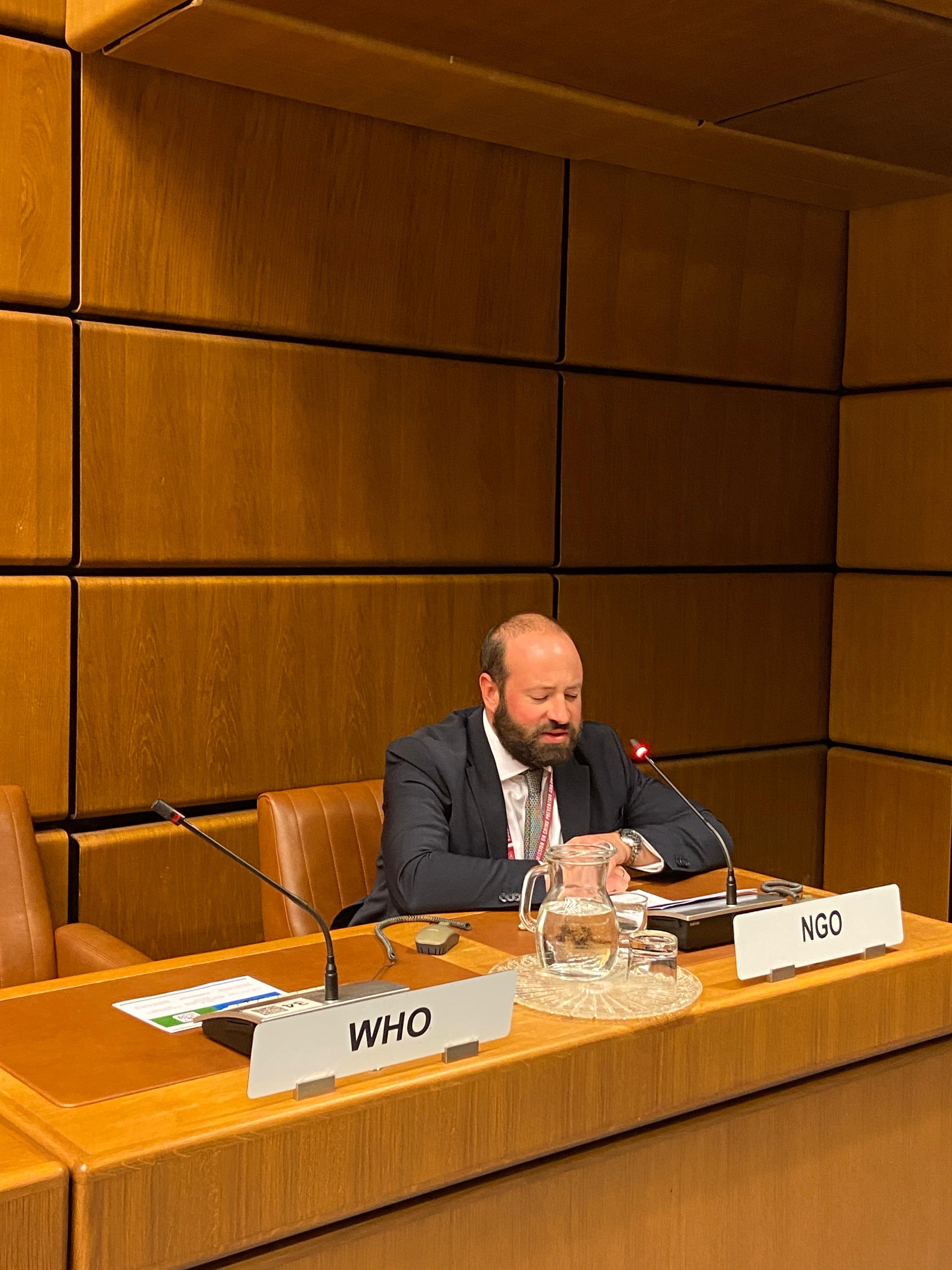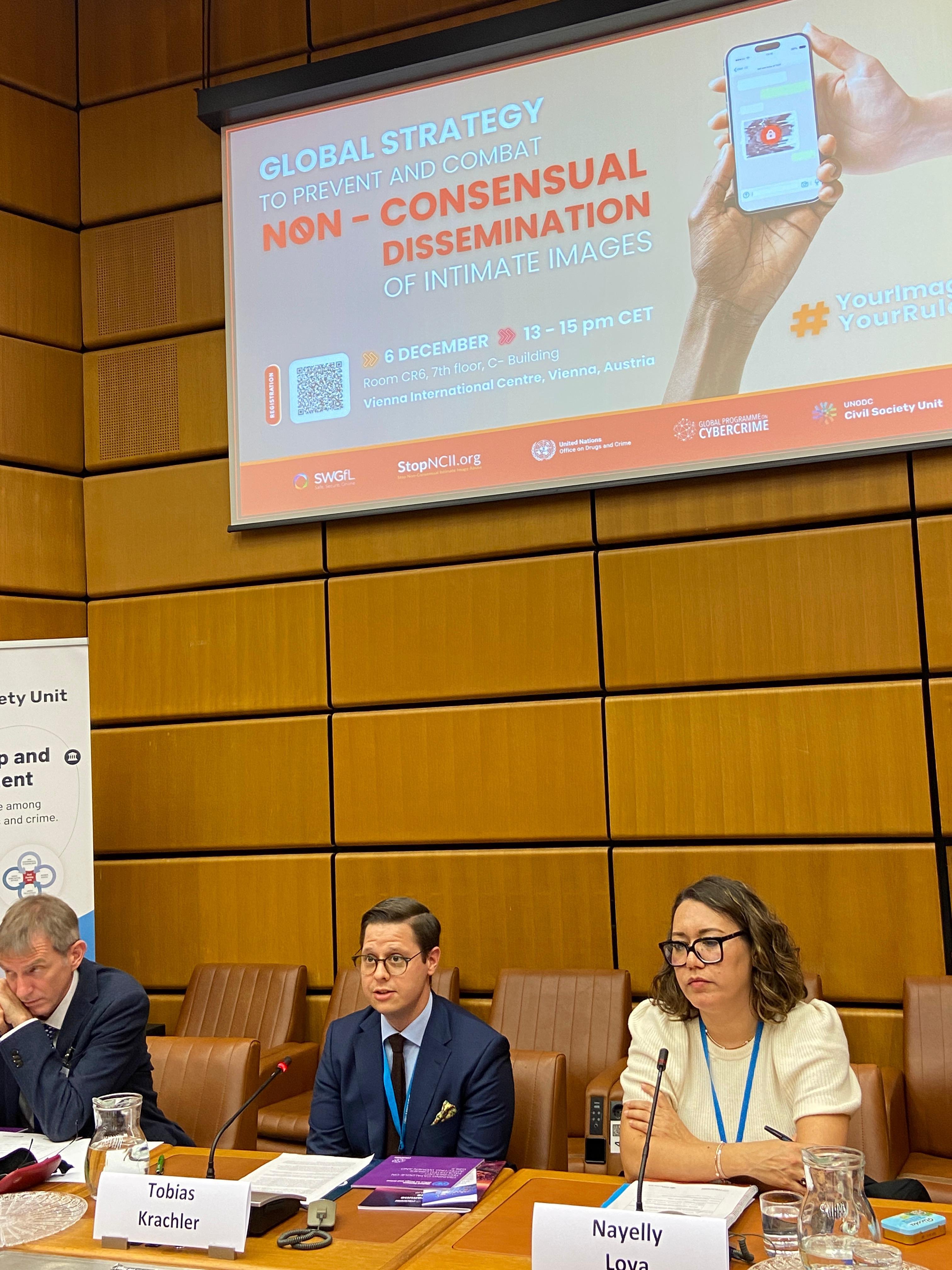Thematic discussions and the reconvened sessions, a summary
Last week, Thematic discussions on Pillar IV “Promoting international cooperation and technical assistance to prevent and address all forms of crime” took place.
The thematic agenda on day 1 focused on international cooperation, both through capacity-building and technical assistance and in depriving criminals of their criminal proceeds.
One panelist and three civil society organisations contributed, The Global Initiative Against Transnational Organized Crime stressed the importance of the correct implementation of UNTOC for a definitive response against organized crime; the Wildlife Conservation Society focused on the importance of protecting the environment from criminal attacks by organized crimes, which damage not only wild life and places, but consequently the living standards of individuals and showed concern about climate and environment changes; Dynamo International spoke about victims of trafficking, particularly how children's are being smuggled; El Pozo de Vida pointed out the importance of the Palermo Convention, especially in fighting against organized crimes and in offering protection to victims of major crimes committed by these criminal groups, such as human trafficking, violence, etc.
The main topic of discussion on Day 2 was terrorism in all its forms and manifestations. The discussion focused on the links between criminal groups and terrorism, the different ways of financing terrorist groups and the importance of international cooperation. Different speakers expressed concerns about the exploitation of new technologies by terrorist groups.
NGOs participating in the dialogues included Victim Support Europe, the panelist of the session, which focused on victims of terrorist attacks, and offered recommendations from the victims’ perspective and good practices based on the UN Model Legislative Provisions. The Kenya National Commission on Human Rights shared human rights-based approaches to combating terrorism, addressing the tensions and dilemmas that arise when security interventions conflict with human rights compliance.
Thematic Session on Day 3 was on new, emerging and evolving forms of crime. Cases like online scams, abuse of blockchain technology, cyberattacks, hate crimes, illegal fishery, use of AI by terrorists, illegal waste disposal, identity theft, and call centre fraud are some of the emerging threats that participants drew attention to. One panelist and four civil society speakers intervened from the floor: Global Initiative to End Wildlife Crime underlined the promise made under the Kyoto declaration, to effectively combat and prevent CAE. They discussed CCPCJ Resolution 31/1, assessed its implementation and pointed out examples of best practices in leveraging international cooperation to successfully tackle wildlife trafficking. The Rabdan Academy, represented by Jacqueline Sebire, focused on the negative and positive aspects of technology, especially in relation to children: web can represent a danger for them, but thanks to technological evolution it is possible to protect them from dangers. Francesca Bosco from the CyberPeace Institute spoke about cybercrime, with a focus on prevention and victim care, both at a practical and at legislative level. Environmental Ombudsman, represented by Florencia D. Vega stressed the negative impact of illegal markets, especially timber, fish and mining, which impact the national economies of Latin America, and environmental crimes committed by criminal organizations, that damage wildlife and the local flora. The Environmental Investigation Agency UK focused on financial crimes that damage the environment, such as illegal waste management, exposing the presence of organized groups established within the environmental world.
The Commission on Narcotic Drugs (CND) and the Commission on Crime Prevention and Criminal Justice (CCPCJ) held joint reconvened joint sessions to examine strategic management, budgetary and administrative issues.
Discussions were held on gender balance and geographical representation among the Commissions and the implementation of the consolidated budget for the biennium 2024 - 2025 for the UN Office on Drugs and Crime. Jallal Toufif, the President of the International Narcotics Control Board, proposed to move the methyl ester of 3,4-MDP-2-P methyl glycidic acid from the body of Table I of the United Nations Convention against Illicit Traffic in Narcotic Drugs and Psychotropic Substances of 1988 to the footnote introduced by CND Decision 67/25. During the CCPCJ session, methods to contribute to the accelerated implementation of the 2030 Agenda, particularly Goal 16, which focuses on peace, justice, and strong institutions, were deliberated.
The World Health Organization (WHO) submitted a report on substances to be added to Schedule I of the Single Convention on Narcotic Drugs (1961), presenting studies on different synthetic drugs, including Protonitazepyne, Etonitazepipne, N-Desethyl isotonitazene. The same organisation presented a second record on substances to be added to Schedule II of the Convention on Psychotropic Substances (1971), like Hexahydrocannabinol. It also proposed a third report on substances to be added to Schedule IV of the Convention on Psychotropic Substances (1971), including Carisoprodol, and another one on substances to be kept under surveillance, such as N-Ethylheptedrone and 3-Hydroxyphencyclidine.
Draft decision tabled by Poland and the Czech Republic on the European Union's position within the Commission on Narcotic Drugs (CND) was voted in favour.
The Alliance delivered a statement on the preparations for the upcoming Crime Congress, which will be held from April 25 to April 30, 2026, in Abu Dhabi, United Arab Emirates. Ian Tennant, Chair of the Alliance, emphasised the central role of civil society organisations in the mandate of the Congress and in practice, alongside governments. At the same time, he expressed his concern about the gradual downgrading of the role of civil society organisations, as evident from the changing language of political declarations, such as the Vienna and Kyoto Declarations. He further stated the Alliance's enthusiasm for working with the host country of the Crime Congress and the UNODC to ensure civil society organisations' broad participation in the Congress's preparatory process. He also recalled a survey published to assess the contributions of civil society organisations to regional preparatory meetings and was pleased to announce that already 350 people have signed up for a briefing that the Alliance will host with the Secretariat for Civil Society during December.
In the margins of the Joint reconvened session, the Alliance was invited to speak at the launch of the Global Strategy to Prevent and Combat the Nonconsensual Sharing of Intimate Images (NSCII). Tobias Krachler, Programme Coordinator of the Alliance, spoke about how closely the Alliance was engaged in the negotiations of the draft UN Cybercrime Convention from the beginning and throughout the negotiation process, ensuring space for meaningful multistakeholder participation empowering diverse voices to shape policies that matter. He further announced the launch of a dedicated working group on cybercrime within the Alliance, to create a space for common civil society engagement and to raise awareness for topic within our network.
09 Dec, 2024
